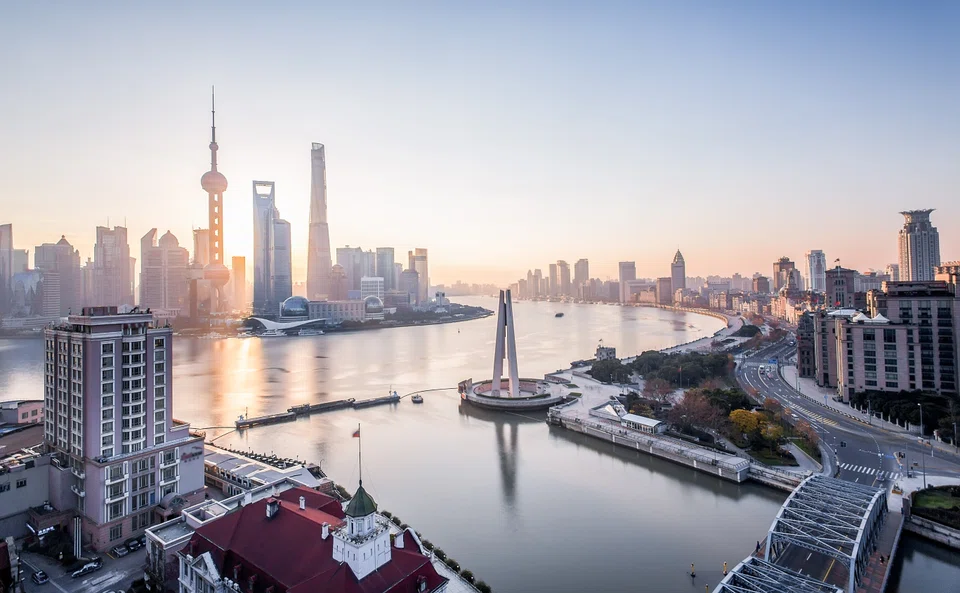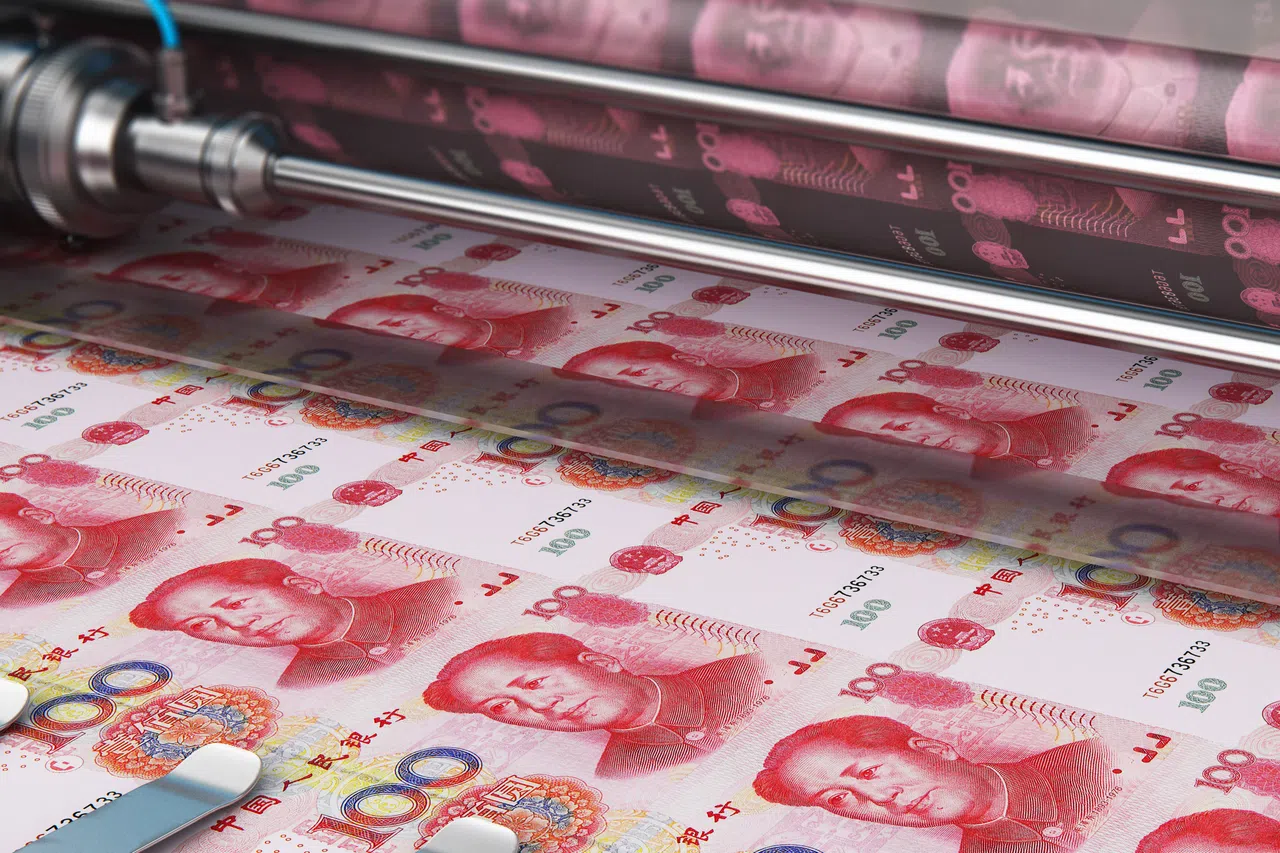China's soft power conundrum: The big divide
While the majority of Mainland Chinese believe that China is a prosperous, harmonious, confident, stable, and responsible power, many outsiders do not. What has China done to boost its soft power and international image? Have these efforts been effective?

One of the features of Chinese politics today is the mismatch between China's hard and soft power. The soft power deficiency directly affects China's international image and has become a challenge in China's foreign relations.
Through more than 40 years of rapid development since Deng Xiaoping's Reform and Opening Up was launched, China has transformed itself from an isolated, impoverished country into the world's second largest economy and one of the most powerful and influential nations. The Chinese have much to celebrate, especially since lifting more than 800 million people out of poverty in itself is a miracle not seen before in human history. In 2001, when China joined the World Trade Organization, its economy was only one-sixth that of the US economy. By 2010, it had reached about half the size of the US economy and overtaken Japan as the world's second largest economy. Most economists estimate that China will surpass the United States within a decade to become the largest.
A mixed international image
As China's economic and military powers continue to grow and living standards for most of its citizens continue to rise, Chinese people today take great pride in their nation's achievements. In the official vernacular, China is moving close to the center of the global stage, and the "Chinese dream" of national rejuvenation will be realised by mid-century. China's achievements and transformations, alongside decades of patriotic education, have led to rising nationalism among ordinary citizens. Various international polls suggest that the Chinese people are highly positive about their country and are among the most optimistic about the future.
"厉害了, 我的国" (roughly translated as "My country is awesome" or "My country rocks") has become a trendy saying in Chinese social media today, especially among young people. In the eyes of most of its citizens, today's China is a prosperous, harmonious, confident, and stable power that is continually growing and playing a responsible role internationally. However, China's image overseas is very different. In the eyes of many people outside China, especially in the West and in some neighbouring countries with which China has various disputes, China looks like an aggressive, threatening, selfish power, with tight political control and latent economic and social crises at home. Because of differences in the political systems in China and the West and geographic proximity between China and its neighbours, this gap in perceptions will not go away any time soon.
According to an October 2018 Pew Research Center poll, a median of 45% in 25 countries around the world have a favorable view of China, while 43% hold an unfavorable view. The same poll finds that a global median of 70% say China plays a more important role in the world than it did 10 years ago. Interestingly, in the United States, 72% believe China is more important on the global scene now than it was a decade ago, while only 31% of Americans say the same about their own country. China is increasingly considered by many to be a global power. However, such a perception of China's growing global role has not translated into support for its global leadership. A 25-country median of 63% prefer a world in which the United States is the leading power, while only 19% favour China as the world leader. Obviously, China's international image remains mixed, and its soft power remains weak.
A shortage of soft power
Some may argue that the West, particularly the United States, views China's rise as a threat because of ideological biases. While this might be true, a fuller understanding of China's poor international image requires some examination of internal issues, particularly the shortage of soft power.
In the eyes of many people outside of China, the Chinese official narrative lacks credibility, and the international audience for brittle propaganda is very small.
Joseph Nye, who coined the term "soft power", suggests that soft power comes from a country's culture, policies, and values. So far, China has heavily relied on money, Confucius, and official propaganda to enhance its soft power abroad.
To enhance its overseas image, the Chinese government launched "Large-Scale Overseas Propaganda (大外宣)" in different parts of the world to promote the Chinese narrative or "tell the China story." In the eyes of many people outside of China, the Chinese official narrative lacks credibility, and the international audience for brittle propaganda is very small.
China established the first Confucius Institute in Seoul in 2004. It now has over 500 Confucius Institutes on college campuses worldwide, along with approximately 1,000 Confucius classrooms at grade schools. In recent years, some Confucius Institutes have been closed in the United States, Canada, Europe, and elsewhere due to suspicions regarding their true agenda as Chinese government-sponsored programmes and their alleged infringement on academic freedom in their host institutions. Such claims have not been fully substantiated, and most Confucius Institutes continue to operate normally, but these allegations pose serious challenges for China's efforts to enhance soft power abroad. Some in the West prop up fears that China is using its "smart power" to penetrate Western societies to influence their China policies and local politics.
Since the beginning of the century, the Chinese government has spent billions of dollars brushing up its image abroad. For example, the official news agency Xinhua already has over 170 overseas branches now and plans to expand to 200 by 2020. The China Global Television Network (CGTN) has 6 channels now, including two in English and others in Arabic, French, Russian, and Spanish, with reporting teams in more than 70 countries. China Radio International broadcasts over 1,100 hours of programming each day in 43 languages from 32 overseas bureaus.
How effective is the Large-Scale Overseas Propaganda?
Since its proposal by President Xi Jinping in 2013, the Belt and Road Initiative (BRI) has become China's signature project. Many questions and concerns have emerged during the six years since its implementation. It appears that no feasibility study was ever conducted before this massive project was launched. To some extent, this mega project that will cost trillions of dollars reflects China's inflated feeling that it is already a major global power. Many Chinese officials truly believe that money talks. Some even jokingly suggest that if a problem can be solved with money, then it is not a problem at all.

By the end of July 2019, China had signed cooperative agreements with 136 countries and 30 international organisations as part of the BRI project. Whether the BRI will be sustainable and what challenges and risks lie ahead are some of the critical issues the Chinese government must consider seriously. China needs to ensure that the Belt and Road only travels to where it is needed, former IMF Managing Director Christine Lagarde remarked at a conference in Beijing in April 2018. China should be more selective in implementing the BRI, scaling back its investment in less profitable or politically and economically unstable regions.
The straightforward message from the protests was that the people in Hong Kong have no confidence in China. Just imagine if the proposed bill were between Hong Kong and Japan or Australia, would Hong Kongers react so negatively and fervently?
How effective is the Large-Scale Overseas Propaganda? While it is always true that beauty is in the eyes of the beholder, in this case, one doubts that the project has worked to the full satisfaction of the Chinese government.
Take Hong Kong's recent turmoil for example. The months-long protests began when Hong Kongers feared that a proposed extradition bill would make it possible for residents of Hong Kong to end up in Mainland Chinese custody without a fair and transparent trial. From a legal perspective and to close the loophole in exiting rules, the proposed bill is perhaps warranted, but critics view it as Beijing's attempt to exercise more control over Hong Kong despite the official One Country Two Systems policy that guarantees Hong Kong a high degree of autonomy. The straightforward message from the protests was that the people in Hong Kong have no confidence in China. Just imagine if the proposed bill were between Hong Kong and Japan or Australia, would Hong Kongers react so negatively and fervently?
Beijing has been disappointed to find that though young Hong Kongers may not pursue independence for Hong Kong, more and more of them consider themselves Hong Kongers, not Chinese. Dealing with the spiraling effects in Hong Kong, Taiwan, and elsewhere in greater China will present a difficult challenge for Beijing. Why are anti-China sentiments much stronger in Hong Kong, Taiwan, and the West now than they were 30 years ago, when China was weak and poor?
In the case of Hong Kong, the Chinese narrative highlights two features of the protests, violence by some protesters and China's sovereignty. These are legitimate concerns from the Chinese perspective, but they are not shared by the West. Western governments and politicians focus on the protestors' pursuit of freedom and democracy, while refusing to condemn their illegal actions such as storming into and vandalizing Hong Kong's Legislative Council and occupying the Hong Kong airport. Call it a double standard, but many outside China seem to side with the protesters. Western audiences will not easily buy the Chinese narrative, even if it is true. This inherent bias contributes to China's low approval rating in the West.

China's "original sin" as an authoritarian regime
The fundamental reason for this response from the West is China's "original sin" as an authoritarian regime. When the public demands freedom and democracy from a non-democratic government, they automatically enjoy Western support. This combination of internal (non-democratic) and external (bias or double standard) factors create a poor international image for China. Barring any major changes domestically and internationally, China will continue to face this dilemma.
Regarding China's overseas propaganda, some China scholars have frank advice for the Chinese government. "If China's narratives don't address the country's shortcomings, it becomes very difficult to sell the idea of China as a purveyor of attractive values," says Elizabeth C. Economy of the New York-based Council on Foreign Relations. David Shambaugh of George Washington University in Washington, DC, observes: "So long as [China's] political system denies, rather than enables, free human development, its propaganda efforts will face an uphill battle."
Due to its size and one-party system, a rising China will be scrutinised by the international community for every move it makes in both domestic and foreign policies. There is not much China can do other than focus on domestic development, including economic liberalisation, political openness, and social justice.
America has always worried about being eclipsed by a challenger that will become the new dominant power in the world. If the challenger is a non-democracy, that sense of anxiety will be further elevated to the level of panic or paranoia.
China needs to get used to external criticism. If China becomes a democracy, will it cease to be considered a threat, or will its image in the West, particularly the United States, become overwhelmingly positive? That's highly unlikely. Consider Japan in the 1980s. A fellow democracy was considered a menace to the United States and was accused of stealing American jobs and industrial secrets, a scenario that seems to be replaying itself in today's US-China trade brawl. America has always worried about being eclipsed by a challenger that will become the new dominant power in the world. If the challenger is a non-democracy, that sense of anxiety will be further elevated to the level of panic or paranoia.
A long way to becoming a global leader with inspiring soft power
Historically, differences in political systems and values have not made China and the West natural enemies. In the mid-1980s, Americans' approval rating of China reached over 70%, higher than their approval of some of America's close allies. This was during the Cold War, and the United States and China needed each other, but China was much more open and liberal then. Deng Xiaoping was featured on the cover of Time magazine several times due to his reformist policies and China's image as a liberalising society. Today, China seems to be retreating in terms of political liberalisation. "Reforms have entered deep waters" is a phrase often used as an excuse to postpone or prevent political and economic reforms that are in fact long overdue.
On the other hand, in the US, there is no consensus that friendly relations with China should be maintained. On the contrary, the only thing that unites Democrats and Republicans in a highly divided America is that the US must be tough on China. Various official documents of the Donald Trump administration have publicly identified China as a major threat to American national interests. Affected by recent developments in both China and the United States, Americans' positive view of China dropped to 26% in 2019, while 60% of Americans have an "unfavourable" view of China, the highest mark since 2005.
Though China enjoys impressive approval ratings among many developing nations, with some even showing interest in the so-called "China model" of partial economic liberalisation with tight political control, its image around the world remains mixed or negative in most democracies. Overall, China has a long way to go to become a well-respected global leader holding enough soft power to inspire others.





